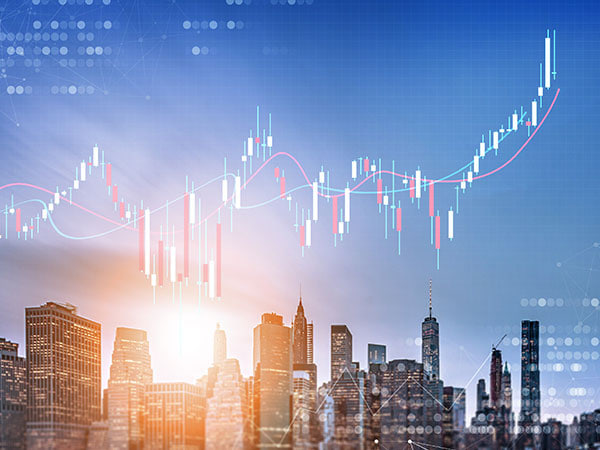Macron, Trump, and Zelensky: A Historic Trilateral Summit in Paris—Decoding the Geopolitical Implications
Meta Description: Macron, Trump, Zelensky, Paris Summit, Russo-Ukrainian War, US Foreign Policy, Franco-American Relations, Geopolitical Implications, International Diplomacy.
(Attractive Introductory Paragraph – 400-500 words)
The cobblestones of Paris, steeped in history and echoing with the whispers of countless diplomatic encounters, witnessed a pivotal moment on December 7th. Not just any meeting, but a high-stakes, highly anticipated trilateral summit bringing together three world leaders whose destinies are intricately woven into the tapestry of global politics: Emmanuel Macron, the seasoned President of France; Donald Trump, then the President-elect of the United States; and Volodymyr Zelenskyy, the resolute President of Ukraine. This wasn't just another photo opportunity; it represented a critical juncture in the ongoing Russo-Ukrainian War and foreshadowed the shifting sands of international relations under a newly elected US administration. The air crackled with anticipation. What would be discussed? What concessions would be made? What would be the ultimate impact on the conflict tearing Ukraine apart? These were the questions burning in the minds of geopolitical analysts, world leaders, and concerned citizens alike. The meeting's significance transcended the immediate context; it signaled a crucial recalibration of alliances and a potential turning point in a conflict that has profoundly impacted global stability. This unprecedented summit, meticulously orchestrated by President Macron, aimed to address the urgent need for a peaceful resolution to the conflict, a goal hampered by the complex web of geopolitical interests at play. The stakes were undeniably high. Trump's incoming administration had yet to articulate a clear and consistent stance on Ukraine, fueling speculation and anxiety in Kyiv. Would the US continue its unwavering support for Ukraine's territorial integrity? Or would a shift in approach favor a more conciliatory stance towards Russia, potentially at Ukraine's expense? The meeting in Paris offered a crucial glimpse into the likely trajectory of US policy under the Trump administration, a policy that would significantly impact not just Ukraine, but the broader geopolitical landscape. The palpable tension was palpable, a silent drama playing out against the backdrop of Parisian elegance. This article delves deep into the details of this historic summit, analyzing its immediate impact and exploring its long-term implications for the future of the Russo-Ukrainian War and global diplomacy. Buckle up, it's going to be a fascinating ride.
The Macron-Trump-Zelenskyy Summit: A Deep Dive
The Paris summit, orchestrated masterfully by President Macron, aimed to address the urgent need for a peaceful resolution to the ongoing Russo-Ukrainian conflict. This wasn't just a casual meeting; it was a strategically planned attempt to navigate the complex geopolitical landscape and shape the future trajectory of the conflict. Zelenskyy, ever the astute diplomat, capitalized on this opportunity, seeking to secure continued Western support and influence the incoming Trump administration's policy towards Ukraine. The meeting's significance lay not just in its high-profile participants, but also in its potential to influence the future course of the war. The pressure was immense, the stakes incredibly high.
The New York Times report highlighted Ukraine's proactive diplomatic efforts in the weeks leading up to the summit. Ukrainian officials understood the importance of establishing early contact with the Trump administration, aiming to shape the narrative and ensure that US policy remained aligned with Ukraine's interests. This proactive engagement speaks volumes about Ukraine's commitment to securing its sovereignty and protecting its national interests. This wasn't simply about reacting to events; it was about actively shaping the future.
Key Discussion Points: A Look Behind Closed Doors
While the specifics of the discussions remain largely confidential, several key themes likely dominated the agenda:
-
The Cessation of Hostilities: The overriding goal was, undoubtedly, a peaceful and lasting end to the conflict in eastern Ukraine. This involved exploring potential avenues for de-escalation and finding common ground between Kyiv and Moscow. This wasn't just about stopping the fighting; it was about finding a sustainable path to peace.
-
Security Guarantees for Ukraine: Ukraine desperately needed assurances of continued support from the US and its allies. This included exploring potential security guarantees to deter further Russian aggression and provide Ukraine with a sense of security amidst ongoing threats. Trust, or the lack thereof, is a major factor in this conflict, and rebuilding that trust will be crucial for a lasting resolution.
-
The Implementation of the Minsk Agreements: The Minsk agreements, a collection of peace protocols that aim to resolve the conflict, have been partially implemented but remain far from fully effective. The summit likely involved discussions on how to revitalize the Minsk process and ensure its full implementation. This requires addressing issues of mistrust and ensuring all parties stick to their commitments.
-
Sanctions Against Russia: The efficacy of sanctions imposed on Russia in response to its aggression was another crucial topic. The discussions likely involved debating the effectiveness of current sanctions and exploring ways to strengthen or modify them to maximize their impact. Sanctions, while contentious, are a key tool in international diplomacy, and their effectiveness needs constant monitoring and reevaluation.
-
NATO Membership for Ukraine: While explicitly stated membership wasn’t on the table, discussions likely included long-term NATO aspirations for Ukraine and how to work towards that goal while navigating the complexities of Russia's concerns. This is a sensitive topic, as NATO expansion has been a source of tension between Russia and the West for decades.
The Role of Each Leader: A Tripartite Analysis
-
Emmanuel Macron: The French President, known for his diplomatic acumen, played the crucial role of mediator and facilitator. His experience in navigating complex international relations proved invaluable in bridging the gap between the different perspectives and fostering constructive dialogue. Macron's sophisticated diplomatic approach was vital.
-
Donald Trump: The then President-elect's participation brought the weight of US foreign policy into the equation. His stance on Ukraine, still somewhat undefined at that point, held immense significance for the future of the conflict. His presence alone signaled a potential shift in the geopolitical balance.
-
Volodymyr Zelenskyy: President Zelenskyy represented the interests of Ukraine. He skillfully used the summit as an opportunity to reiterate his country's commitment to peace while emphasizing the urgent need for continued international support. His leadership and strength in the face of conflict were on full display.
Immediate and Long-Term Implications
The immediate impact of the Paris summit was a renewed focus on the search for a peaceful resolution to the conflict in Ukraine. The fact that such a high-level meeting took place signaled the international community's continuing concern for the situation. In the long term, the summit's impact will depend heavily on the actions taken by all parties involved in the conflict. The potential for a diplomatic breakthrough, however, was undeniably enhanced by the meeting. It served as a powerful reminder that dialogue, even in the face of conflict, is essential for achieving peace and stability.
Understanding the Geopolitical Landscape
The Russo-Ukrainian War is more than just a regional conflict; it's a pivotal moment in the ongoing struggle for influence between Russia and the West. The summit reflects the broader geopolitical struggle for power and dominance. Understanding this context is crucial for appreciating the full significance of the Paris meeting.
Frequently Asked Questions (FAQ)
-
What was the main goal of the Paris summit? The primary goal was to find a peaceful resolution to the Russo-Ukrainian War and to chart a course towards de-escalation.
-
What role did President Macron play in the summit? Macron acted as a key mediator, facilitating dialogue and bridging the gap between the different perspectives of the three leaders.
-
What were the key discussion points? Key issues included cessation of hostilities, security guarantees for Ukraine, implementation of the Minsk agreements, sanctions against Russia, and Ukraine’s relationship with NATO.
-
What was the significance of President-elect Trump's participation? Trump's presence signaled the potential for a shift in US foreign policy towards Ukraine, making the summit a critical moment for shaping the future trajectory of the conflict.
-
What was the immediate impact of the summit? The summit generated renewed international focus on the need for a peaceful resolution in Ukraine and highlighted the importance of continued dialogue and cooperation.
-
What are the long-term implications? The long-term consequences will depend on the subsequent actions of all parties involved, but the summit undeniably increased the potential for a diplomatic breakthrough.
Conclusion:
The Macron-Trump-Zelenskyy summit in Paris marked a pivotal moment in the ongoing Russo-Ukrainian conflict. It served as a testament to the importance of international diplomacy and the urgent need for a peaceful resolution. While the long-term implications remain to be seen, the summit’s significance lies in its potential to shape the future course of the war and the broader geopolitical landscape. The meeting underscored the complex interplay of interests and the challenging task of achieving lasting peace in a region fraught with tension. The success of this summit, and indeed the future of peace in Ukraine, hinges on the continued commitment of all parties to dialogue, compromise, and a genuine desire for a peaceful resolution. The road ahead remains long and arduous, but the Paris summit offered a glimmer of hope in a conflict that has caused immense suffering and instability.



